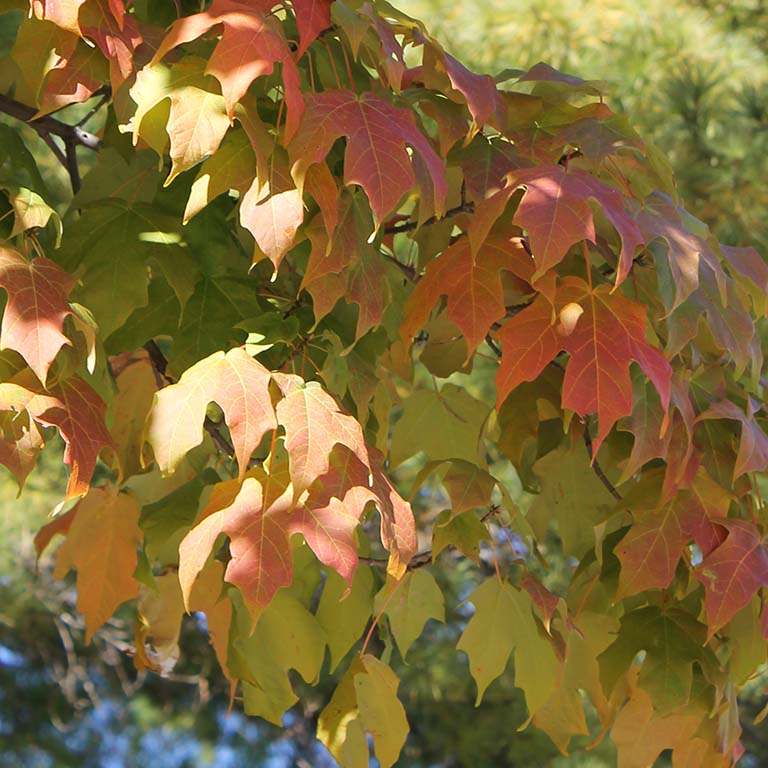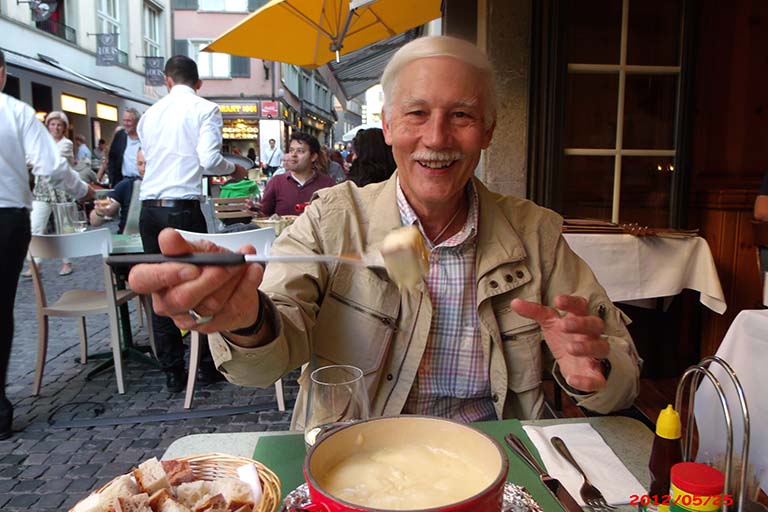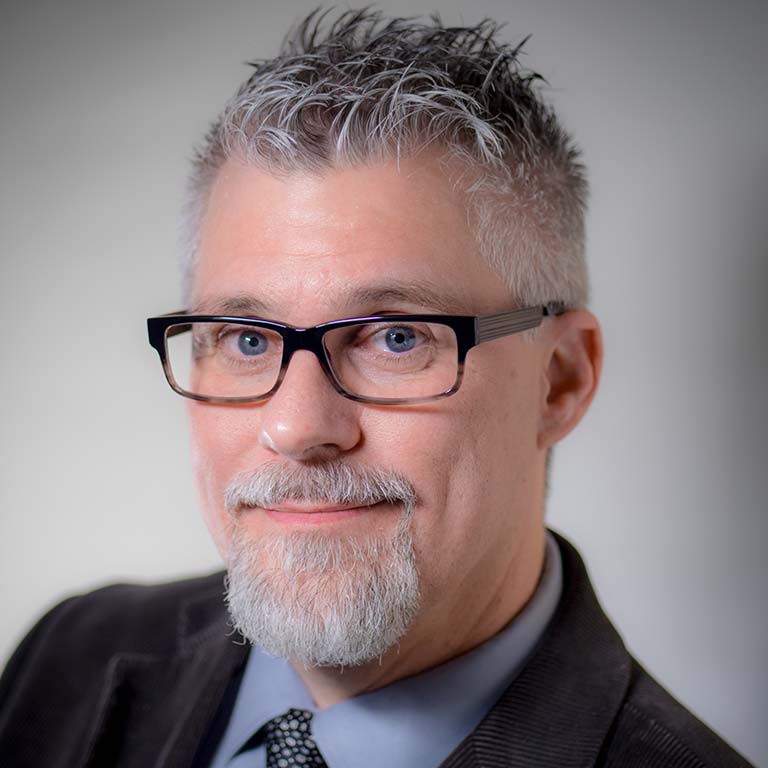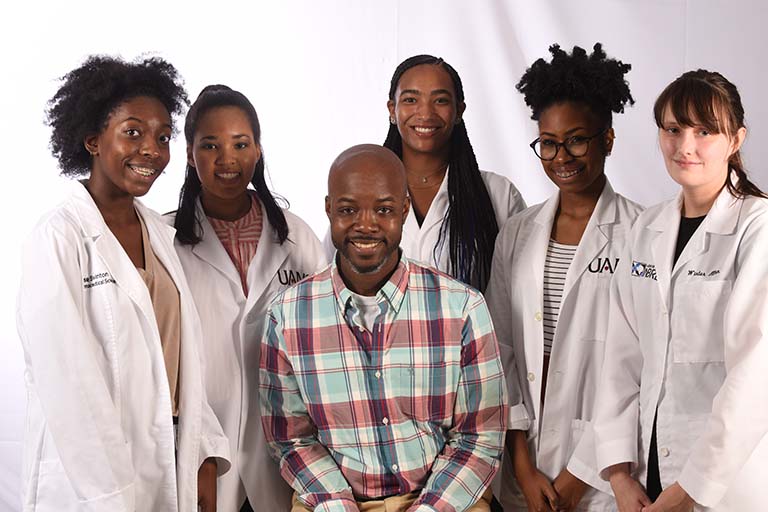We’d like to hear from you! Share your recent accomplishments to be added to "class notes" in the next BioNews issue.
In the meantime, check out what your fellow alums have been doing.

We’d like to hear from you! Share your recent accomplishments to be added to "class notes" in the next BioNews issue.
In the meantime, check out what your fellow alums have been doing.
Michael C. Miller, BA ’64 Zoology, MA ’67 Zoology, earned his PhD from Michigan State University in 1972. Miller spent 40 years as a research professor in the Department of Biological Sciences at the University of Cincinnati. He retired 10 years ago, having trained 45 graduate students. Miller did research in Arctic Alaska for 29 summers, examining the structure and function of Arctic lakes and rivers with IBP and Tundra LTER, and 15 years of tropical lake ecology and paleolimnology of dozens of lakes around the equator from Kiribati, Galapagos, Ecuador, and Brazil with ecologist Paul A. Colinvaux's team. As an emeritus professor, he continues to work for clean water in southwest Ohio, leading a volunteer water quality monitoring program of 8 parameters of 270 stream/river sites monthly as part of greater Cincinnati's Green Umbrella Watershed Group. Miller works with many nonprofits in his region, including Rivers Unlimited, Inc.; Friends of the Great Miami; Oxbow, Inc.; Mill Creek Alliance; and Ohio River Basin Consortium for Research and Education, among others. He leads many canoe tours and river cleanups. Miller races canoes 2 days a week with other seniors and his favorite recreation is traveling somewhere around the world a couple of times a year.

Jerome F. Wermuth, PhD ’68 Zoology, reports that he received his doctorate exactly 50 years ago this summer. Wermuth, a retired professor of biology from Purdue University Northwest, states that his most notable accomplishment is surviving the last 50 years. He adds, “Life is good.”
Mary E. Andrews, BS ’84 Biological Sciences, retired in June after nearly 34 years at Indiana University. Andrews, a research associate, worked in Distinguished Professor Rudolf Raff’s laboratory throughout her entire career. She has many great memories of taking classes here and doing research in the Raff lab. Her husband, Steve, retired in September. The couple plans to purchase a small RV and head west to visit several national parks. Andrews is spending her retirement doing the things she loves: gardening, bird watching, and camping.
Madeleine Gonin, BS ’98 Microbiology; MS Applied Health Science ’04 Safety Management; PhD ’16 Human Performance (Motor Learning), works for the IU Center for Innovative Teaching & Learning as the STEM Specialist for Instructional Technologies. In her spare time she teaches T’ai Chi Ch’uan and is learning to play the ukulele.
Scott L. Kight, PhD ’96 Ecology and Evolutionary Biology, has been on the Department of Biology faculty at Montclair State University since 1997. He is the associate dean for student affairs in the College of Science and Mathematics at Montclair. Kight has many wonderful memories of his studies in the IU Department of Biology, where he was mentored by the late Bill Rowland (1943-2004) and belonged to the Center for the Integrative Study of Animal Behavior. Kight says, “The integrative approach of the center was fundamental in shaping my development as a researcher, the kinds of questions I have investigated, and my overall philosophy of science and higher education.”

Antiño R. Allen, MA ‘02 Ecology and Evolutionary Biology, PhD ‘10 Evolution, Ecology & Behavior, was named director of the Pharmaceutical Sciences Graduate Program at the University of Arkansas for Medical Sciences’ College of Pharmacy. Allen is an assistant professor in the Division of Radiation Health in the Department of Pharmaceutical Sciences at UAMS. While at IU, he earned the 2000-2001 James P. Holland Graduate Fellowship in Biology, presented to first-year Ph.D. graduate students who come from groups underrepresented in the life sciences. Allen spent his summers working with the Jim Holland Summer Science Programs that bring high school students from underrepresented groups to campus to broaden their horizons in genetics, evolution, environmental biology, molecular biology, and plant sciences. Students participating in the Holland program attend lectures, take part in discussions, and participate in hands-on laboratory experiences. With such a background, it is fitting that at UAMS, he runs a summer research internship program for high school upperclassmen and college students who would like to pursue careers in medicine, pharmacy, biochemistry, biomedical research, pharmacology, public health, or behavioral sciences. Students accepted into the UAMS program conduct research under the supervision of faculty mentors as well as the people working with the faculty, such as the postdoctoral fellows, research assistants/associates, and research coordinators.

Teresa L. Dzieweczynski, PhD, ’05, Evolution, Ecology & Behavior, was named the Ludcke Chair of Liberal Arts and Sciences for 2018-2019 at the University of New England in Maine. The Ludcke Chair is presented annually to a tenured member of the faculty of the College of Arts and Sciences in recognition of outstanding academic accomplishments. Dzieweczynski is an associate professor in the Department of Psychology and is the program coordinator for UNE’s interdisciplinary animal behavior major. In 2016 she received the Mid-Career Mentoring Award from the Council on Undergraduate Research.
Stephanie M. Campos, PhD ’18 Evolution, Ecology & Behavior, received a Next Generation Postdoctoral Scholarship in Neuroscience at Georgia State University’s Center for Behavioral Neuroscience and their Neuroscience Institute. She is a postdoctoral fellow working with Professor Walt Wilczynski at the Neuroscience Institute. Campos’s research focuses on the neuroethology and sensory ecology of territorial Anolis lizards.
Loralyn M. Cozy, PhD ’11 Microbiology, returned to the IU Department of Biology to give a seminar, "Regulation of patterning and cell division during terminal differentiation," on April 24. Cozy is an assistant professor of biology at Illinois Wesleyan University.
Grace M. Crain, BS ’15 Biology, graduated from the University of Texas at El Paso with an MS in biological sciences. Her thesis focused on phosphorus dynamics in desert soils. She joined the plant nutrition group at ETH Zurich in Switzerland this fall as a doctoral researcher studying crop production for life support systems. Crain enjoys the outdoors, going to the movies, writing, reading, and playing the ukulele.
Shraddha Easwaran, MS ’12 Microbiology, is a manager for Medico-Marketing at Cadila Pharmaceuticals, a position she has held since mid-2018. Easwaran married Vishal Kapoor in September. The couple resides in Ahmedabad, India. In her spare time, she enjoys reading, watching movies, and salsa dancing.
Nathaniel “Nate” L. Feirer, PhD ’17 Microbiology, accepted a postdoctoral position in July of 2017, joining the lab of Associate Professor David Andes, M.D., in the Department of Medicine at the University of Wisconsin-Madison. Nathan is working on biofilm formation in the pathogenic yeast, C.albicans.
Melanie (Stamper) Hosier, BS ’14 Microbiology, began working for Eli Lilly in Indianapolis shortly after graduation. Initially, Melanie was hired as a quality control biologist, where she performed microbiological testing. In 2017, she took a job as a manufacturing scientist in technical services, where she learned and supported the process of making medicine. She was promoted to senior scientist in March of 2018. Hosier serves on the community impact committee for the United Way of Madison County and is part of the Leadership Academy of Madison County's class of 2019. She is married to Sam Hosier and the couple resides in Pendleton, IN.
Adrian Deshaun Land, PhD ’11 Microbiology, started a new position this August as a regulatory manager at Procter & Gamble. Previously, Land was a microbiologist with the FDA Office of Regulatory Affairs. He and his wife, Anyah, MPH ’11, reside in Liberty Township, Ohio, with their two sons. Land, who received IU’s James P. Holland Fellowship in Biology in 2004-05, returned to campus this summer to work with middle- and high- school-aged students through the James Holland Summer Science Programs. The three programs address the ethnic and racial disparities that exist in STEM fields. This was Land’s 12th summer volunteering with the Holland programs that “mean the world to me.” He currently works with the second in the series of Holland programs, the Summer Science Research Program (SSRP), admitting, “It’s my favorite because you get more time with the students.” Land laughingly adds, “We push them, they drive me crazy, and I love every minute.”
Sampriti Mukherjee, PhD ’14 Microbiology, returned to the IU Department of Biology on April 6, 2018, to give a seminar entitled, “Rhll-independent gene regulation by the Pseudomonas aeruginosa quorum-sensing receptor RhlR.” She is a life sciences research foundation postdoctoral fellow in Professor Bonnie L. Bassler’s laboratory in the Department of Molecular Biology at Princeton University. Mukherjee resides in Princeton, NJ.
Kymberleigh A. Pagel, BA ’11 Biology, BS ’11 Informatics, is earning her doctorate in informatics here at IU. Her research mentor is Professor of Computer Science Predrag Radivojac. Pagel was honored in 2017 with the Ian Lawson Van Toch Memorial Award for the Outstanding Student Paper at the Intelligent Systems for Molecular Biology conference held in Prague.
Raymond C. Parrish II, BS ‘14 Biology, earned his M.D. from the Harvard Medical School this May. He is doing an internal medicine residency at Massachusetts General Hospital in Boston.
Rishabh “Rishi” Sethia, BS ‘14 Biology, BS 2014 Neuroscience, earned his M.D. from The Ohio State University College of Medicine this May. He was the recipient of the College of Medicine Academic Excellence Award that is bestowed upon one graduate each year. Sethia is pursuing an otolaryngology residency at OSU.
Samantha L. Young, BS ‘16 Biology, returns home to the IU Department of Biology as the new student services specialist in the undergraduate advising office, replacing Alice Eads who retired earlier in the year. Young says, “This department is where I started my academic career, and it is a privilege to be able to use my experiences to help provide high-level support to students pursuing biology.” Her interests include video games, baking, and embroidery.